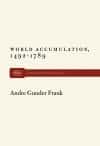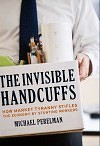Political Economy
Monthly Review Press is publishing an exceptionally strong collection of new books in 2007. However, like most small presses the modest budgets we can devote to the promotion of these books scarcely allow us to be heard above the din created by the massive promotional campaigns of the large corporate publishing firms, which are, of course, mere arms of much greater media conglomerates. We are therefore hoping successfully to promote these new books mainly by word of mouth with the help of MR readers and friends. In this space last month we referred to Michael D. Yates’s new book, Cheap Motels and a Hot Plate, which is now available. Two other new releases are Jean Bricmont’s Humanitarian Imperialism: Using Human Rights to Sell War (translated from the French by Diana Johnstone), and The Socialist Register, 2007: Coming to Terms with Nature, edited by Leo Panitch and Colin Leys. Bricmont’s book seeks to reintroduce the critique of imperialism to the global discussion on human rights, while the new Socialist Register addresses the emerging eco-socialist critique of capitalism | more…
In the 2006 presidential election campaign in Brazil, President Luiz Inácio Lula da Silva (known as Lula), leader of the Partido dos Trabalhadores (PT or Workers’ Party), was interviewed at length on July 11, 2006, by the Financial Times (which also interviewed Lula’s main rightist challenger Geraldo Alckmin). The interview touched on many topics but mainly concentrated on Lula’s adherence in his first term of office to the global neoliberal policies of monopoly-finance capital, particularly repayment of debt and “fiscal responsibility.” At two points in the interview the Financial Times bluntly asked whether Lula was looking toward a “radical change in the model,” i.e., whether he and his Workers’ Party intended to break with financial capital and neoliberalism in his second term of office. Lula gave them the answer they wanted: “There is no radical change in the model….What we need now, in economics and in politics, is to strengthen Brazil’s internal and external security.” | more…
These articles were written five months before the first round of presidential elections in Brazil, on October 1, 2006. The second round, on October 29, saw Lula reelected with 58.3 million votes (60.78 percent of all valid votes), beating Geraldo Alckmin, the candidate for the Partido Social Democrata Brasileiro (PSDB), the party of Fernando Henrique Cardoso, Lula’s predecessor in office. Lula won this second four-year mandate after a campaign revolving around ethical issues and allegations of corruption against government officials and high-ranking members of his Partido dos Trabalhadores (PT)—allegations from opposition parties, right and left. The campaign included the pathetic episode of PT officials trying to buy information on candidates from the PSDB in the State of São Paulo (economically and politically speaking, one of the most important states in the union, with a strong oppositional streak), and a concerted nationwide media campaign for Alckmin on a scale never before seen in Brazil | more…
The Lula government’s concept of social protection is not to be found in any official document or in any paper from his Workers’ Party (PT) or his electoral platforms. This is why it is so difficult for the public at large, unfamiliar with the principles of social policy, to understand the meaning of his proposals and actual policies. In trying to explain this concept, we will discuss the government’s reform of the social security system, underlining its impact on the state apparatus. We will analyze the core of its social policy as represented by the Programa Bolsa Família (Family Basket Program) and describe the way the economic cabinet designs social policy. From this start, we make the point that Lula’s public policy puts on hold previous advances in the field of social rights, tries to create a private health care system, and erects welfare networks not founded upon rights. This last factor is crucial for the creation of a new base of support for the government, one not structured around social, union, and political workers’ organizations | more…
François Chesnais has defined three stages in the process of financial globalization. The first took place in the 1970s and he calls it “indirect financial internationalization of closed national systems.” Latin American countries including Brazil took part in this process of attracting a substantial volume of loans. The second stage, 1980-85, started with Paul Volcker’s “dictatorship of creditors” and the discovery by Margaret Thatcher of neoliberalism as the doctrine for the new age. The center countries, starting with the United States and Great Britain, unlocked their financial markets by liberalizing the international flow of capital. The interlinking of national systems became more direct and immediate through market finances. In Latin America, the debt crisis exploded with rising interest rates (following the negative Volcker shock) involving massive debt contracted in the prior period brokered by the banking system | more…
n the 1980s the Brazilian economy suffered a long spell of stagnation and inflation caused by the foreign debt crisis affecting all indebted countries. That crisis triggered an acute inflationary process that reached 2,012.6 percent in 1989 and 2,851.3 percent in 1993, according to the general price index from the Getulio Vargas Foundation. The second half of the 1980s and the first of the 1990s saw the deployment of successive anti-inflationary plans, starting with the 1986 Plano Cruzado and ending with the 1994 Plano Real.* The period also marked the end of the industrialization strategy known as “import substitution” and the onset of neoliberal policies in Brazil | more…
Since Fernando Collor’s 1989 presidential victory, and most notably since Fernando Henrique Cardoso’s two terms in office (1995-98 and 1999-2002, respectively), economic policies have been enacted in Brazil that represent a subordinate alliance of the country’s dominant classes with international capital. Unfortunately, under President Lula these same sectors have remained in control, and economic policy caters to their interests | more…

Most of Andre Gunder Frank’s early work on the nature of underdevelopment focused on one region: Latin America. Here he broadened his canvas and traced the world-wide effects of the process of capital accumulation from the period just prior to the discovery of America to the industrial and French revolutions. It is Frank’s thesis that “the world has experienced a single all-embracing, albeit unequal and uneven, process of capital accumulation centered in Western Europe,” which has been capitalist for at least two centuries. | more…
Defining moments in the history of a nation are time and again overshadowed by the drama of war. These critical events are often domestic policy decisions that affect the immediate state of a country and have serious consequences for the future. Significant examples in U.S. history include: the initial decision of the revolutionary government to found a republic dedicated to the lofty principles of “life, liberty, and the pursuit of happiness” but embracing slavery, a contradiction that ultimately led to civil war; the decision to prematurely end reconstruction efforts in the South after the Civil War, a policy reversal which allowed the long-term oppression and exploitation of the emancipated slaves and their descendents; and the decision during the Second World War to encourage the mass migration of poor African Americans from the rural South to the industrial centers of the Midwest and Northeast to support the war economy, a haphazard resettlement program that resulted in the ghettoization and continued oppression of a significant national minority | more…

Mainstream, or more formally, neoclassical, economics claims to be a science. But as Michael Perelman makes clear in his latest book, nothing could be further from the truth. While a science must be rooted in material reality, mainstream economics ignores or distorts the most fundamental aspect of this reality: that the vast majority of people must, out of necessity, labor on behalf of others, transformed into nothing but a means to the end of maximum profits for their employers. The nature of the work we do and the conditions under which we do it profoundly shape our lives. And yet, both of these factors are peripheral to mainstream economics. | more…
The year now ending marks the fortieth anniversary of Paul Baran and Paul Sweezy’s classic work, Monopoly Capital: An Essay on the American Economic and Social Order (Monthly Review Press, 1966). Compared to mainstream economic works of the early to mid-1960s (the most popular and influential of which were John Kenneth Galbraith’s New Industrial State and Milton Friedman’s Capitalism and Freedom), Monopoly Capital stood out not simply in its radicalism but also in its historical specificity. What Baran and Sweezy sought to explain was not capitalism as such, the fundamental account of which was to be found in Marx’s Capital, but rather a particular stage of capitalist development. Their stated goal was nothing less than to provide a brief “essay-sketch” of the monopoly stage of capitalism by examining the interaction of its basic economic tendencies, narrowly conceived, with the historical, political, and social forces that helped to shape and support them | more…
Important bloated men squat on the facts
thinking they can hide them with their weight:
men who think their power like King Canute
ordering the sea to behave, can abolish
the eons slow inexorable rise of mountains,
the branching and dying of species, wind
and water that will grind the Himalayas to dust | more…

